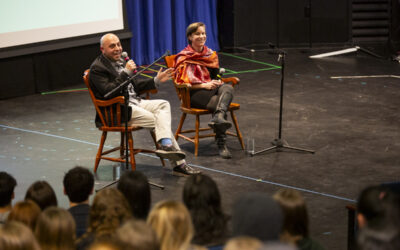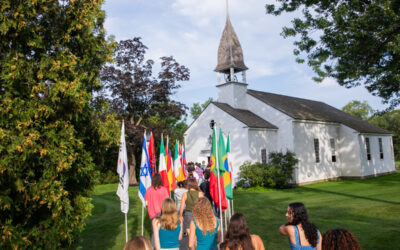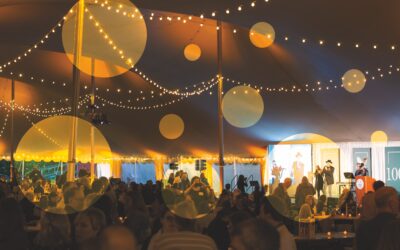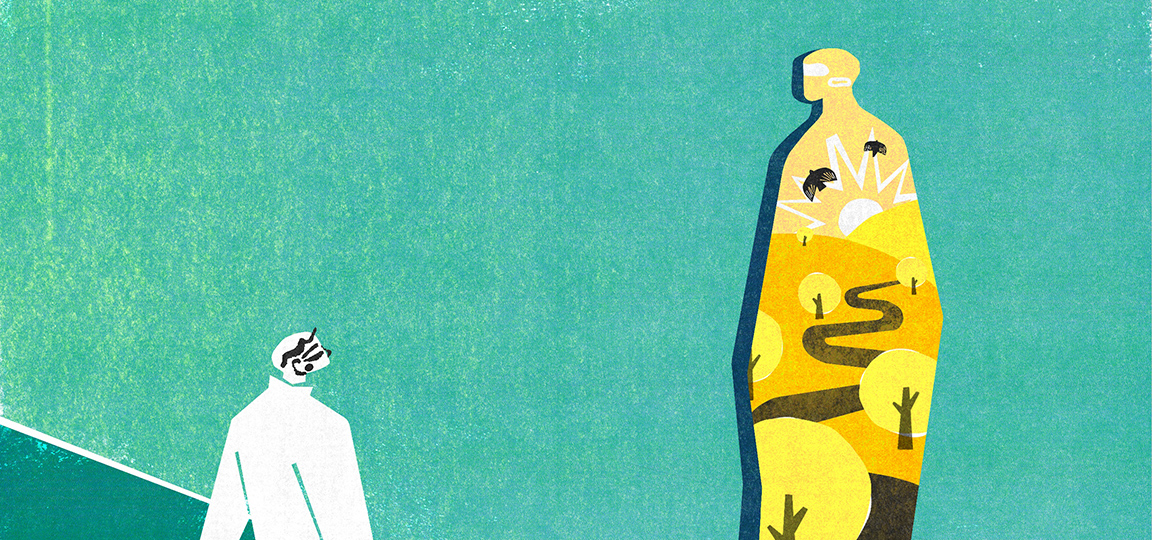
CA alums recraft careers for meaning and purpose
In March 2020, the COVID pandemic shutdown forced untold numbers of people in the workforce to suddenly slow down and simplify, whether they wanted to or not. And many discovered that a slower pace, less commuting, and more time at home added up to a more meaningful life.
That came as no surprise to these three CA alums, who had downshifted to a less stressful, more intentional approach to work long before a rampant virus came along to upend things. These are their stories.
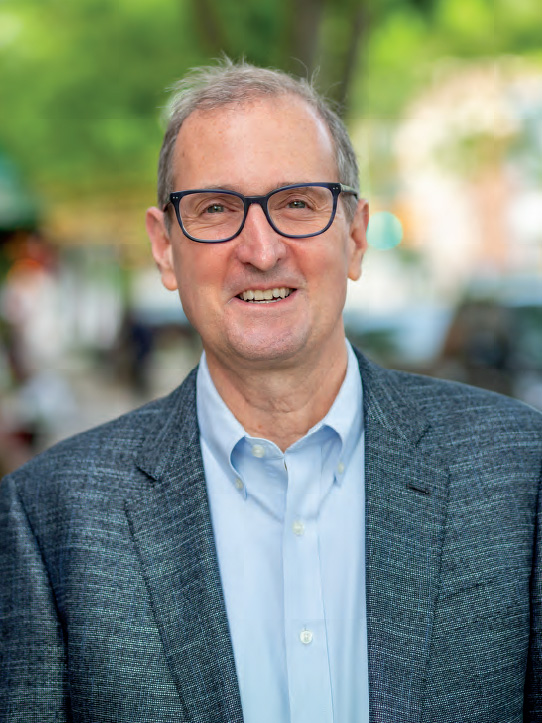
Robert Elwood ’78
lawyer; partner and co-founder, Practus
You won’t find articles on work-life balance or company playlists on the websites of many law firms. But go to Practus.com and you don’t have to scroll far to find them.
It wasn’t always that way. “For years, I was at a gargantuan law firm with 1,000 lawyers,” Bob Elwood says. “It was the type of culture where you would arrive at 8:00 a.m. and stay until 7:00 p.m.” He made a partner and was “having a bit of glamour. I’d get to go to places like London and San Francisco.” But two to three times a week he was also getting called to the school of his son with special needs.
Elwood found that having to leave his office in downtown Philadelphia and get to the suburbs to his son’s school meant he was being neither an effective lawyer nor an effective parent.
He says he took a long, hard look at his life and asked himself, “‘Do I want to be a good lawyer or a good dad?’ And I decided I wanted to be a good dad.”
So in 2005, with the full support of his family, Elwood stepped back.
“I will tell you that a few people thought I was crazy, because I was making a lot of money and had solid job prospects,” Elwood says. He believes his high school experience helped foster the daring he called on when he left his law practice to care for his son. “Concord Academy introduced me to the idea that anything was possible,” he says.
For about three years, Elwood’s downshift meant being a full-time, stay-at-home dad. “I walked my son to school, I walked him home from school, and from 3:00 to 7:00, we’d sit at the dining room table and do homework together,” he says. As his son grew older and more independent, Elwood contemplated going back to work—but with a new model in mind.
With a handful of colleagues from his former firm who were seeking work-life balance due to children’s needs, personal health issues, elder care obligations, or simply wanting to enjoy life, Elwood launched a law firm with a difference. “What we did from the start was say, ‘We don’t care where you work, we don’t care when you work. We do care that you produce excellent quality work,’” he says.
“I mean, when I was in law school, people still used typewriters,” Elwood says with a laugh. “These really are the days of miracles and wonders.” The firm is fully virtual, and the staff use conference calls, email, and text messages as their main means of communication. “My work telephone number is my cell phone number,” Elwood says.
The firm now employs some 45 lawyers and is growing fast. Working virtually means Practus has “cut out the cost of fancy office towers and mahogany furniture and Oriental rugs,” says Elwood. That means they can charge “about two-thirds what the large firms might charge. And clients are just delighted to have smart people at good prices.”
These days, Elwood and his wife divide their time between Philadelphia and Cape Cod, and he can work from either location. A flexible schedule and the reduced need for face time means he can take full advantage of the Cape, which he calls “paradise.” He says, “I just went to the beach for lunch. That’s something that I would not be able to do if I were working in an office.
Elwood has never regretted stepping back to support his son, who is just about to complete his nursing degree. (His other son works for Practus as a paralegal.) “When you’re young, you want the brass ring of being a partner at a prestigious law firm, and all the glory that involves. And I was lucky enough to have that,” he says. “And then you realize, ‘Wow, you know, that’s not quite all there is.’ For me, these last years have been about the happiest stretch of professional life that I’ve had. So I guess it comes back to happiness.”
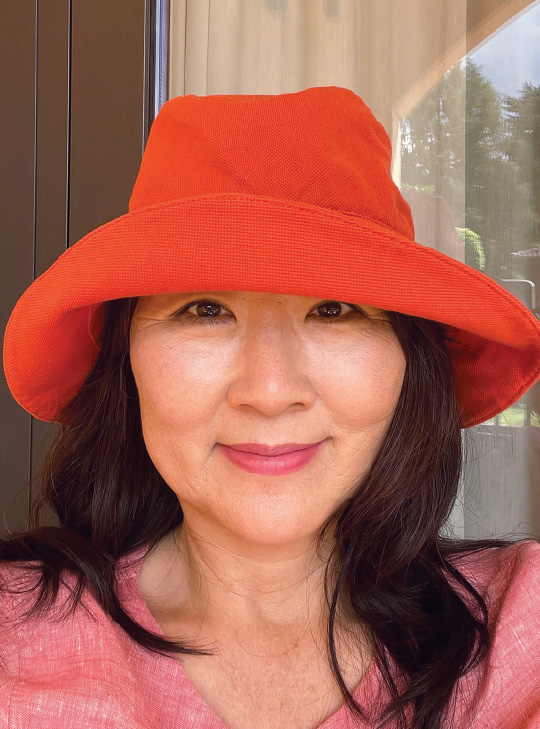
Julianne (Jiyhun) Lee ’86
publisher, Ars Vitae; co-founder, Krueger & Lee
Though Julianne Lee’s career began on a very public stage, she found herself continuing to look inward. After graduating from Brown, Lee returned to South Korea, where she worked as a news correspondent and anchor for a major TV network. She later attended graduate school at Harvard, then became a spokesperson in the Korean president’s office.
“I come from a family with a public sector background, so I vaguely had the sense that I would also follow that path, and it was something that was familiar to me,” Lee says. “My life was in the public light. But since I was very young, I was always curious about how the universe or life worked. I thought that if I had this wisdom, then I would know how to navigate in this world and live in alignment with the true purpose of life.”
Lee says she sensed that her life would be about achievement in the outer world for a time, but that she eventually would dedicate herself more intentionally to the inner world. “Just as the outer world offers so much diversity of experience, I felt that the inner world was just as interesting, complex, and meaningful to explore,” she says.
“When the time came, I was ready to leave the career I had and start on the path of exploring myself and the deeper meaning of life.”
The path wasn’t always smooth, she says. She was used to living and working in a very competitive world driven by ambition and worldly success. “All of my daily patterns and relationships were formed by that life,” she says. “It took quite a bit of time to gain this self-awareness by observing how I thought, spoke, and acted every day—in short, to understand the auto-pilot of my life up to that point. It was a process of aligning my inner intention with the outer manifestation so that what I did in the outer world was a reflection of who I was on the inside.
In 2014, this meant launching Ars Vitae (the art of life), a publication series that deals with the question of what it means to live well. Each volume focuses on an aspect of contemplative life with the aim of weaving wisdom into the contemporary lifestyle. Lee also co-founded a nonprofit organization, Krueger & Lee, in Switzerland, which organizes forums on science and contemplative practices. She co-hosts a nine-month “journey” to explore human flourishing with leading scientists and spiritual practitioners, and offers meditation retreats and a “spiritual book salon.” In 2019, Lee moved from Seoul to the countryside in eastern Switzerland, to a house that was built in 1551.
“Everything starts with the question ‘What is all this really about?’ This is the kind of question that cannot be answered intellectually but only through direct experiences,” says Lee. She cites a Zen monk with whom she recently hosted a session in Switzerland: “He explained this with a very simple example: You can look at a bottle of water and read its content label over and over, but you can only truly understand what water is when you drink it.”
Lee’s work is about “repackaging spiritual wisdom to bring it into today’s lifestyle in today’s language so that it is accessible to the contemporary seeker,” she says. “I’m not religious, and neither is my work.”
Lee seeks to share current scientific findings that provide data-based clues to help us better understand ourselves and our lives. “I often find that professionals with demanding careers don’t really have a safe community to share the questions they have about life and are sometimes wary of looking within,” she says. “An important and very rewarding aspect of my work is providing that safe space.”
Lee feels fortunate to have spent her formative years at CA. “Of course, there was some of that usual high school anxiety about trying to get into the right college and thinking about the future,” she says, “but overall, CA provided the liberal and generous atmosphere that allowed me ample time to ponder the important questions of life.”
That pondering has now become a life path, one that allows Lee’s outer and inner worlds to align.
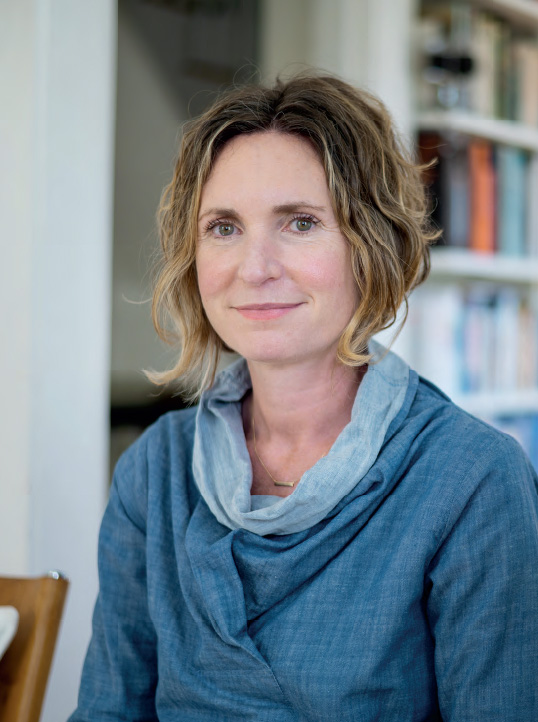
Mette Aamodt ’92
architect; co-founder and CEO, Aamodt / Plumb
John Lennon famously sang that life is what happens to you while you’re busy making other plans. So it was for architect Mette Aamodt.
“I’m a type-A only child, an ambitious go-getter,” she says. “And that got me into Harvard Graduate School of Design.”
But at the time of her graduation, Aamodt says, she was diagnosed with multiple sclerosis, “the day the moving truck was in front of our house, and we were packing up to move to New York City.”
She already had a job lined up, “but it was hard for me to work a 40-hour-a-week job. It was hard for me to trudge all over the city. And I was really sick at the beginning, before I was able to get on medication. So it was kind of like the hammer dropped.”
Aamodt kept quiet about her diagnosis for 10 years. “I just tried to do my best because I didn’t know my prognosis and I didn’t want anyone to think less of me,” she says.
Dealing with her illness while pursuing a career as an architect has been a process of “trial and error,” she says. She is thankful for the support of her husband and business partner, Andrew Plumb, “who was willing to figure it out with me.”
Over time, the couple identified three goals for their lives: “To do good work, because we didn’t want to give up our ambition. We wanted to have a good life, meaning, I was going to be healthy, and we were going to be happy. And we wanted to make a good living. Now, having those three things in architecture at the time was laughable. This was 2002. It was like, are you kidding me?”
Even so, that became their framework for making decisions, including which firms they worked with and where they lived. They moved back to the Boston area, “which is slower and quieter, and has an easier pace than New York,” Aamodt says. (They live in Arlington, Mass., with their children.) They also decided to go out on their own so that they could be more flexible.
“We had fallen into doing fancy custom houses for the 1%,” says Aamodt. “And we were really burning out on it in all kinds of ways—morally, spiritually, and physically.” Then, in the early days of the pandemic, when only essential businesses were allowed to stay open, they had an epiphany: “We’re designing vacation homes for wealthy people. Definitely not essential. And we wanted to do something more essential.”
They took several radical steps to get there. “We got rid of the adversarial contractor relationship by becoming the contractor ourselves,” she says. “And then recently, we got rid of the clients, because they were also major stressors. So right now, we’re building housing at a price point that the market can afford.” Their new business model involves designing and building market-rate housing in Cambridge to sell.
Aamodt says it has been a huge transition, “but all the while with that same North Star of doing good work, wanting to have a good life, and making a good living.”
Aamodt and Plumb are proponents of the Slow Space movement, which their firm’s website describes as “deliberate, meaningful space that has been designed and crafted for you and your experience … It is not a place you pass through … but a place to inhabit, linger, and experience. It is the antidote to our busy, harried lives.”
Slow Space is part of the larger Slow Living movement, which started with Slow Food in Italy in the 1980s, in opposition to the opening of a McDonald’s there. “Andrew and I were already living a slow life without realizing that was a thing,” Aamodt says. “And then we found the Slow movement, and said, ‘Oh, my God, there’s actually a name for this.’”
CA, says Aamodt, helped her take an unconventional approach to life and work. “The emphasis on free expression and being who you are, being true to yourself, allowed different people to express themselves in different ways,” she says. “You know … find your voice, find your joy, speak your truth, and find what it is you’re passionate about. I’m certain it gave me a foundation that made me feel confident about swimming upstream, going the other way.”
Story by Catherine O’Neill Grace
Illustration by Fernando Cobelo
Photography by Avi Loren Fox and Nicholas Pfosi and courtesy of Julianne Lee
